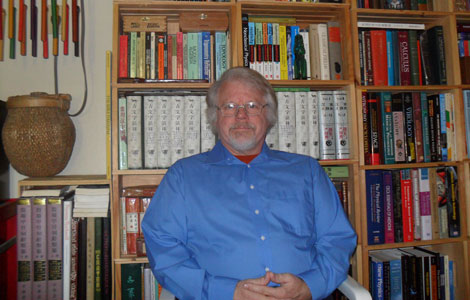A feeling of connection a reason for expats to stay
Updated: 2013-09-09 14:43
By Sun Ye (China Daily)
|
||||||||
Places, like people, are imperfect.
So, how do you decide where to settle down - especially in a foreign land? What cities steal the hearts of expatriates in China? And why?
These were the questions I sought to answer in a marathon of interviews with the State Administration of Foreign Experts Affairs, which is compiling the Most Attractive Chinese Cities for Foreigners list.
To this end, it has also been gathering firsthand accounts and suggestions from expatriates for its annual Amazing China campaign on a China Daily website. Voting ended on Aug 31, and the results will come out in early November.
Every year, the administration examines one or more of the cities expats often list among the country's most habitable. The administration this year focused on Guangzhou, which didn't make the top 10 last year, when Shanghai, Beijing and Shenzhen respectively topped the list. Xiamen ranked ninth and Qingdao took 10th.
But Guangzhou ranked sixth in 2011.
The campaign involves the administration of two-page surveys in which expats check boxes to evaluate various dimensions of the good, the bad and the ugly about their host cities - healthcare, pollution, entertainment options and the like.
The essential question is: Why have you stayed in the Chinese city in which you live?
Emotional attachment turns out to be more important than one might imagine.
Foreigners will leave a Chinese city with good healthcare, schools and tax policies if they don't feel a personal connection. And they'll stick around in a city they have feelings for, despite traffic jams, language barriers and overcrowding.
It's perhaps like relationships with people, in which we often learn to live with the faults of those we love.
Many have highly individual specifications.
"The most important thing expatriates judge a city by is whether you can navigate it by walking," Guangzhou Modern BRT and Sustainable Transport Institute director Karl Fjellstrom says.
The Australian finds Guangzhou to be brimming with engaging neighborhoods with distinct characters and has mapped several walking tours based on his own on-foot explorations.
Fjellstrom believes the city's marketing has overemphasized parks and monuments while glossing over its lively communities.
Even though he dislikes the off-street parking, spans of dull buildings and decelerating development, he gives Guangzhou a 10 out of 10. And he plans to stay.
Miguel Esteban, a Spanish scientist with the Guangzhou Institute of Biomedicine and Health, says: "It destroys me to see the students don't believe in how good they'll be."
He worries his best students seek to go abroad rather than stay with the academy. Many of his colleagues work diligently but with a "punch-card attitude", he says.
He believes announcements of national-level grants filter to Guangzhou too late and their translations are often poor.
But he adores his life and work in the city and plans to stay indefinitely.
It seems to me you can only make constructive criticisms if you've taken life in a foreign place to heart.
There's a Chinese proverb that says the more you love someone, the more faults you'll find with them. Again, places are like people.
So, you'll have well-intentioned critiques if you love a place.
Overseas Chinese who return to China share similar feelings about Guangzhou.
RIBOBIO chairman and Chinese Academy of Sciences lab director Zhang Biliang says he wishes he had more options for educating his children other than the American International School of Guangzhou.
"I think I can speak for a lot of people my age when I say good schools are the reason people leave cities," says the Zhejiang province native who 10 years ago moved to Guangzhou from the United States, where he lived for about two decades.
Zhang also believes his lab is riddled with bureaucracy and has repeatedly advised trimming administrative personnel, he says.
"But, no, I wouldn't leave," he says.
"I wouldn't even think of it. My career and family are here."
It's not always culture that lures foreigners to China. It's often a career. Many are posted by their employers, rather than opting on their own to relocate to the country.
And those who feel most content seem to be those who evaluate their lives in the country according to non-financial criteria.
CRGBanking senior manager Ulrich Rosenbaum has come to love Guangzhou, a city he'd never heard of and had to look up on Wikipedia before moving there from his native Germany.
"I love being fully integrated into the local community, the street vendors, the witty bargaining."
He encourages other foreigners to step out of their comfort zones. It takes commitment to China if they will last in the country, he believes.
"It should never be just a job," he says.
"Be open-minded. In the end, it all depends on if you find what you want."
I couldn't agree more.
sunye@chinadaily.com.cn
(China Daily USA 09/09/2013 page9)

 Rare look in Shaolin temple
Rare look in Shaolin temple
 Last photos of Hungarian wingsuit diver
Last photos of Hungarian wingsuit diver
 In photos: Typhoon Fitow aftermath
In photos: Typhoon Fitow aftermath
 Japan-US military drill raises tension
Japan-US military drill raises tension
 Higgs and Englert win physics Nobel prize
Higgs and Englert win physics Nobel prize In Bali, they relax in local fashions
In Bali, they relax in local fashions
 Post office for Liaoning carrier opens
Post office for Liaoning carrier opens
 A smog-filled Beijing targets polluting cars
A smog-filled Beijing targets polluting cars
Most Viewed
Editor's Picks

|

|

|

|

|

|
Today's Top News
China predicted to be largest tourist market for US
Peace is in China's DNA: says ambassador
Xiaomi's Barra ready to take on Beijing
A day of cultural exchange at Pace University
ZTE, Houston Rockets shooting for global markets
Global firms facing HR challenges in Asia
Shops court Chinese with Mandarin
Back to 1942, entered for the 86th Oscars
US Weekly

|

|







